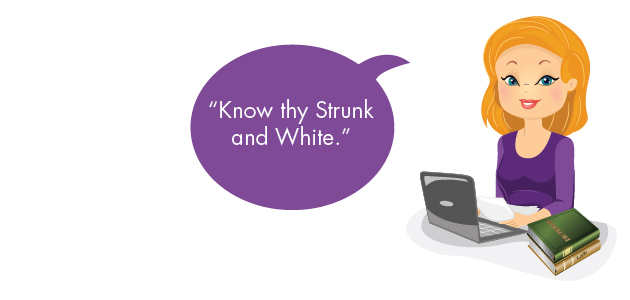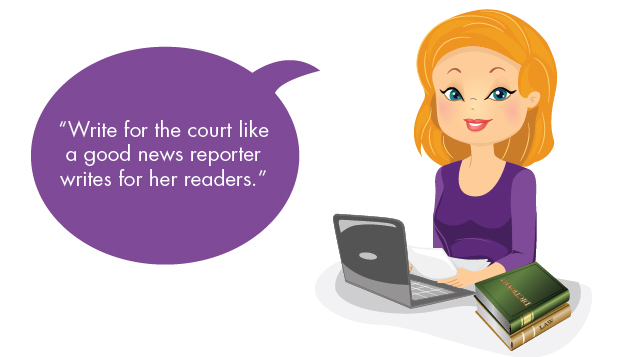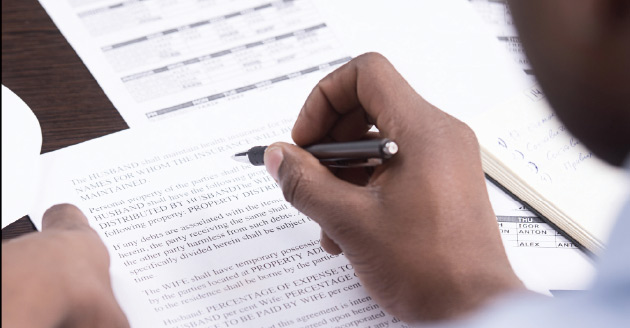Fifty-eight years ago, the Macmillan Publishing Company commissioned famed essayist and children’s book author E.B. White to revise The Elements of Style, the “little book” penned in 1905 by William Strunk Jr., a professor of English composition at Cornell University.…
Legal Writing Tip: Write Like a Reporter
Editor’s note: We are excited to welcome attorney/researcher/writer Savannah Blackwell as she takes over the Legal Writing Tips Column. Write for the court like a good news reporter writes for her readers. A reporter attempts to answer all the…
Legal Writing Tip: Avoid Losing Credibility When Writing Your Brief
In law school, we’re taught to zealously advocate for clients. But in brief writing, attorneys shouldn’t resort to hyperbole, sarcasm and exaggeration to achieve that goal. When seeking to persuade, it’s critical to stay within the bounds of the facts…
Legal Writing Tip: Communicating Effectively
Grammar debates can be epic to those who care. Can interface be used as a verb? Are double negatives really prohibited? Can “that” and “which” or “further” and “farther” be used interchangeably? Which side one lands on may be a…
Legal Writing Tip: Write Your Briefs with a Sense of Style and Drama
We continue this month with more from Melvin Mencher’s News Reporting and Writing, my journalism textbook that, in my opinion, should be required reading for lawyers too. In Chapter 7, the “Writer’s Art” (in my copy, the 7th edition), Mencher…
Legal Writing Tip: Get Active in Your Editing; Eliminate Passive Voice
One of my chief editing tips is to read your document repeatedly, each time scanning for only one thing – excessive commas, unnecessary capitalization, throat-clearing, etc. The first scan should probably be devoted to eliminating passive voice. Passive voice: The ball was thrown by Cathy. Active voice:…
Legal Writing Tip: Don’t Be Lame
When finishing up a piece of writing, whether it’s a document to be filed with the court or even a short e-mail to a client, consult a master editing checklist to ensure you don’t have any substantive or, worse, embarrassing errors. While I recommend devising a unique…
Legal Writing Tip: Avoid Legal Clichés
Clichés in writing extend far beyond stories that begin, “It was a dark and stormy night.” Legal writing, too, is often loaded with overused phrases that have lost their oomph, whether it be idioms or literary and pop culture references.…
Legal Writing Tip: Tackling Problematic Words
Here’s more on the ever-popular topic of easily confused words. Email me your own problematic pairs – they could end up in a future column. Preventative, Preventive Both mean devoted or concerned with prevention. Some linguistic purists prefer preventive. Imply,…
Legal Writing Tip: There’s an App for That Too?
There’s an app for everything these days and writing is no exception. Here are a few that might appeal to legal writers. Index Card www.denvog.com/app/index-card This digital corkboard is designed for the visually minded. Use it on your iPad/iPhone to…
Legal Writing Tip: Using a Second Pair Eyes to Proof Your Work
I’ve long recommended that lawyers get a second pair of eyes on important documents, either a professional editor or a trusted colleague. Ideally, within the bounds of attorney-client privilege, the editor should know little about the subject matter so as…
Legal Writing Tip: Learning to Convey Your Expertise
You’re a lawyer, not an academic. In briefs, opinion letters and client communications, you must convey your expertise simply, even when describing something complex. Consider yourself a technical writer, a knowledge expert just like a software manual writer, whose job…













